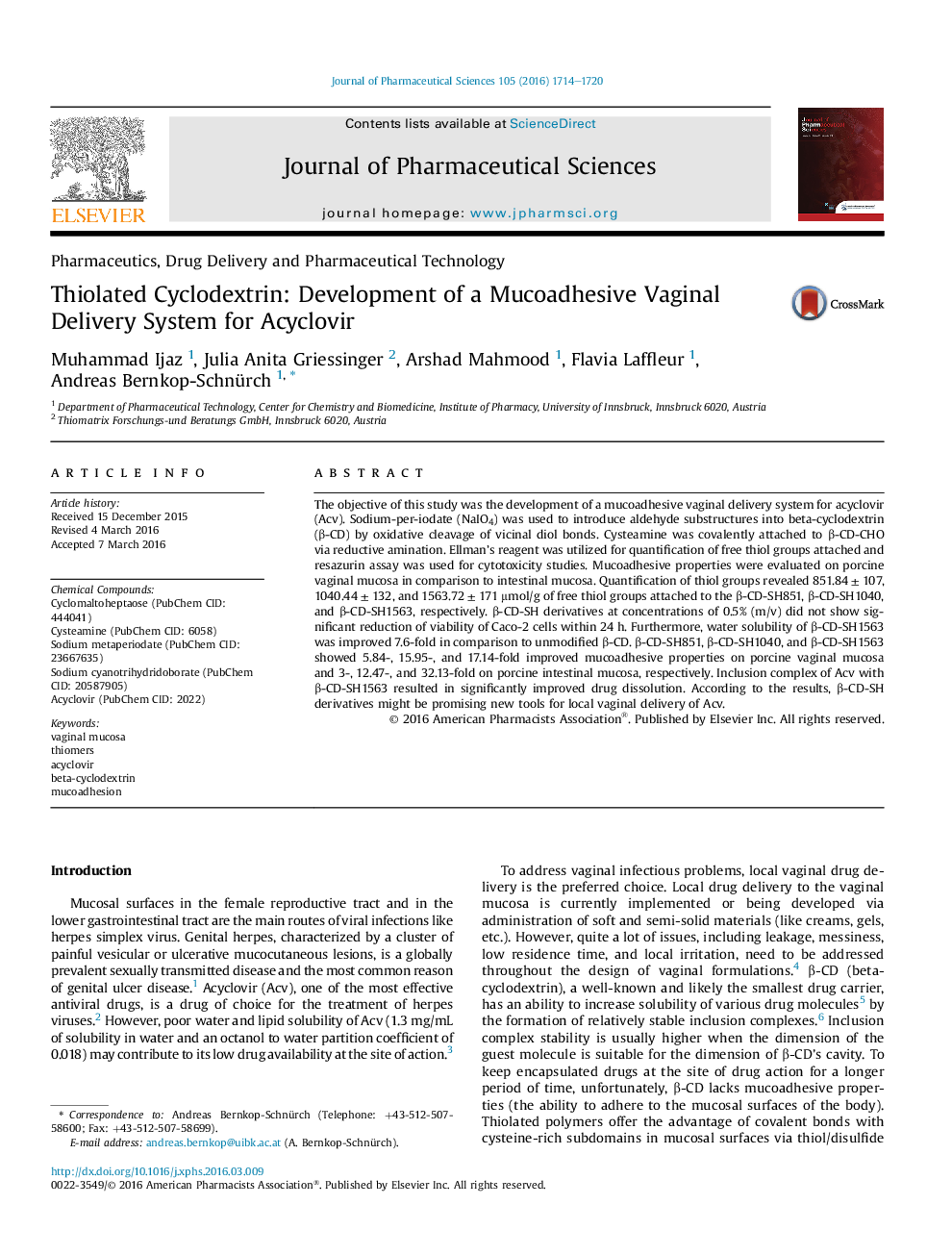| Article ID | Journal | Published Year | Pages | File Type |
|---|---|---|---|---|
| 2484360 | Journal of Pharmaceutical Sciences | 2016 | 7 Pages |
Abstract
The objective of this study was the development of a mucoadhesive vaginal delivery system for acyclovir (Acv). Sodium-per-iodate (NaIO4) was used to introduce aldehyde substructures into beta-cyclodextrin (β-CD) by oxidative cleavage of vicinal diol bonds. Cysteamine was covalently attached to β-CD-CHO via reductive amination. Ellman's reagent was utilized for quantification of free thiol groups attached and resazurin assay was used for cytotoxicity studies. Mucoadhesive properties were evaluated on porcine vaginal mucosa in comparison to intestinal mucosa. Quantification of thiol groups revealed 851.84 ± 107, 1040.44 ± 132, and 1563.72 ± 171 μmol/g of free thiol groups attached to the β-CD-SH851, β-CD-SH1040, and β-CD-SH1563, respectively. β-CD-SH derivatives at concentrations of 0.5% (m/v) did not show significant reduction of viability of Caco-2 cells within 24 h. Furthermore, water solubility of β-CD-SH1563 was improved 7.6-fold in comparison to unmodified β-CD. β-CD-SH851, β-CD-SH1040, and β-CD-SH1563 showed 5.84-, 15.95-, and 17.14-fold improved mucoadhesive properties on porcine vaginal mucosa and 3-, 12.47-, and 32.13-fold on porcine intestinal mucosa, respectively. Inclusion complex of Acv with β-CD-SH1563 resulted in significantly improved drug dissolution. According to the results, β-CD-SH derivatives might be promising new tools for local vaginal delivery of Acv.
Related Topics
Health Sciences
Pharmacology, Toxicology and Pharmaceutical Science
Drug Discovery
Authors
Muhammad Ijaz, Julia Anita Griessinger, Arshad Mahmood, Flavia Laffleur, Andreas Bernkop-Schnürch,
